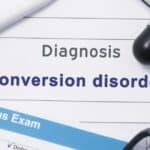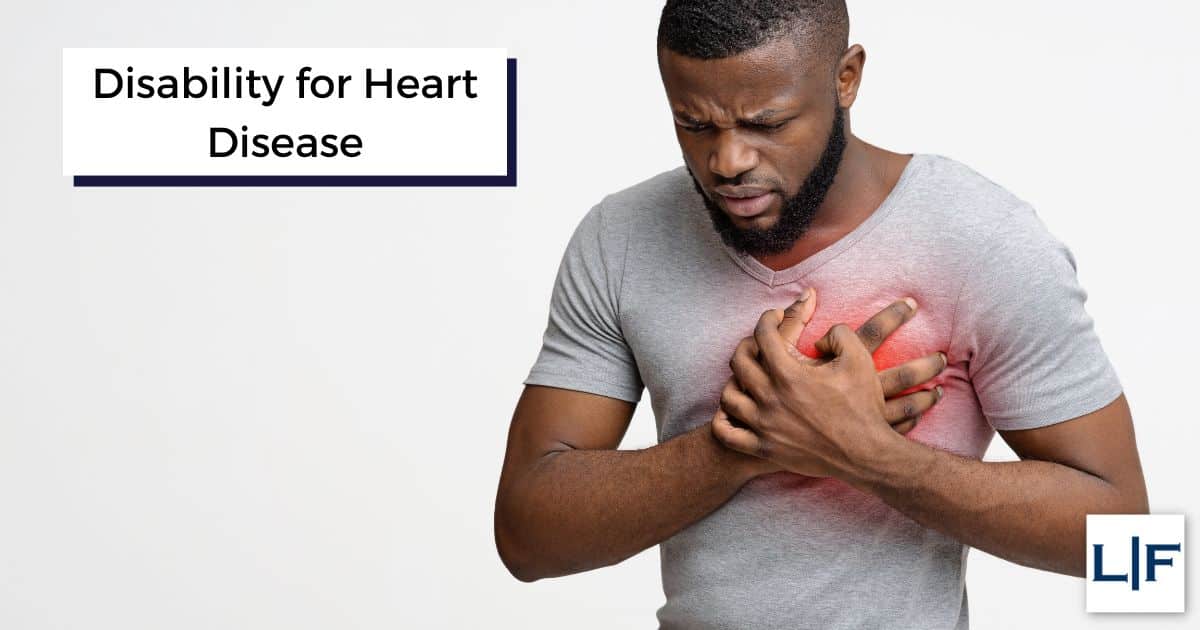Almost half of American adults are living with some form of cardiovascular disease, according to the American Heart Association. The symptoms of heart disease can greatly affect your general functional capacity and impair your ability to work. If you have heart disease and are unable to continue working, you might be eligible for Social Security disability benefits. For help getting social security disability for heart disease, call Lunn & Forro, PLLC at 888-966-6566 and request a free case evaluation.
What kinds of heart disease might qualify for disability benefits?
The Social Security Administration (SSA) details the criteria that people with various types of heart disease can meet to qualify as disabled. Section 4.00 of the listing of impairments features the cardiovascular conditions that may qualify as disabilities, along with the specific medical requirements for each.
Some of the listed cardiovascular impairments and conditions that may qualify for disability benefits include:
- Aneurysm of aorta or major branches
- Chronic heart failure
- Chronic venous insufficiency
- Heart transplant
- Ischemic heart disease
- Peripheral arterial disease
- Recurrent arrhythmias
- Symptomatic congenital heart disease
What are the medical criteria for disability based on heart disease?
The SSA evaluates each cardiovascular condition differently. For example, let us say someone with an arrhythmia wants to apply for benefits. The SSA will not deem all arrhythmias disabling. Arrhythmias with reversible causes, such as electrolyte abnormalities, digitalis glycoside, or antiarrhythmic drug toxicity, do not meet the definition of disabled. In order to meet the medical criteria for disability, an arrhythmia must be characterized by the following:
- Uncontrolled, recurrent episodes of cardiac syncope or near syncope;
- The episodes occur despite prescribed treatment; and
- A doctor has documented the episodes by resting or ambulatory electrocardiography, or by other appropriate medically acceptable testing.
This is just one example. Depending on your own health condition(s), you may have to meet other criteria. And if your heart condition is not on the listing of impairments or does not meet the specifications of a listing, you may still qualify for disability if you can prove it prevents you from engaging in substantial gainful activity.
What other conditions do I need to meet to qualify for benefits?
You must meet several basic requirements to qualify for disability benefits. As aforementioned, the first thing the SSA will look for when evaluating your case is whether or not your condition meets criteria in the listing of impairments and/or prevents you from engaging in substantial gainful activity.
A doctor must expect your heart condition to last a year or more or result in death in order to qualify. Your condition must also be severe enough to impair your ability to work. If you can no longer work at your old job because of your disability, the SSA will then determine whether or not you can adjust to new work as part of the five step sequential evaluation process.
You must also meet benefits specific to the type of disability benefits you are applying for – Social Security Disability Insurance (SSDI) or Supplemental Security Income (SSI).
If you are applying for SSDI, you must have enough work credits on your record. You earn work credits by working at a job in which you pay Social Security taxes. The number of credits you need depend on your age. Meanwhile, SSI is a monthly cash benefit for people with disabilities who have limited income and resources.
How do I prove that I meet the criteria for disability benefits?
Be prepared to have as much evidence as you can to prove your disability. This is vital; the SSA initially denies more than 75 percent of applications for benefits, many of which are because of lack of sufficient medical evidence and incomplete or inaccurate forms. It is highly recommended to have a lawyer to help gather evidence and pursue the benefits you deserve.
What do I do if the SSA denies my application for disability benefits?
If the SSA denied your application for disability benefits based on heart disease, do not lose hope yet; we can appeal your case. After determining why the SSA rejected your application, our disability lawyers will set to work on gathering evidence to help you prove your disability meets the SSA’s standards.
But there is a strict time limit on when you can file an appeal. Procrastinating could nullify your rights to benefits.
For questions about disability benefits for heart disease or for help appealing a denied claim, call Lunn & Forro, PLLC today for a no-cost, no-obligation consultation with a disability lawyer in Raleigh: 888-966-6566
Related Posts

Can I Get Disability for Diabetes?
The short answer to the question is yes, there are people who receive Social Security disability benefits for diabetes. However, they do not get disability

Is Schizophrenia a Disability? – Social Security Disability Benefits
Schizophrenia is a severe mental illness that affects about 1 percent of the population. However, it tends to run in families so someone with a

Can You Get Disability for Conversion Disorder?
Conversion disorder is a mental illness that causes neurological symptoms, such as paralysis or hearing loss. It is one of several conditions that fall under

Getting Social Security Disability For a Stroke
Each year, approximately 800,000 Americans experience a stroke, reports the Centers for Disease Control and Prevention (CDC). Strokes are a leading cause of disability among
Getting Social Security Disability for a Mental Illness
There are various mental illnesses that can qualify someone for disability benefits. In fact, approximately one-third of disability beneficiaries received a mental disorder diagnosis in
Disability for Anxiety and Panic Attacks
Disability for anxiety and panic attacks is available to individuals who cannot work due to the severity of their symptoms. Panic disorders are not uncommon.
Is BPD a Disability?
Some people who suffer from Borderline Personality Disorder qualify for disability benefits. Personality disorders are characterized by unhealthy and rigid thoughts and behaviors that greatly
Is PTSD a Disability?
Post-traumatic stress disorder (PTSD), which can develop after exposure to an extremely traumatic event, is not uncommon. According to the Department of Veterans Affairs (VA),



